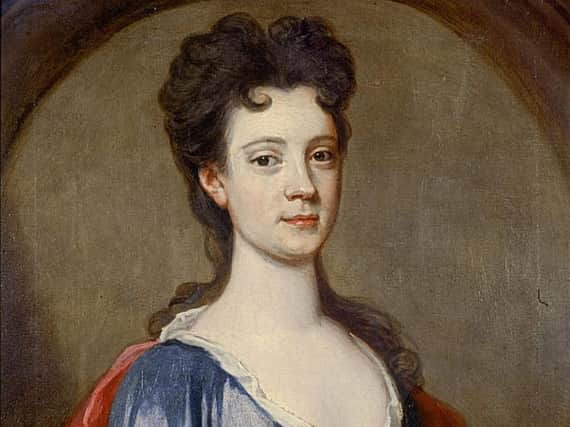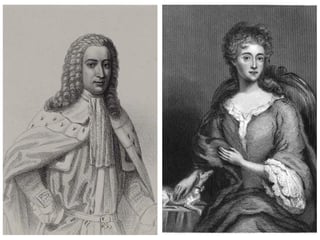The extraordinary kidnap and abduction of a Jacobite wife retold in historical novel


Now, the extraordinary tale of Lady Grange has been explored in a new historical novel.
The Unreliable Death of Lady Grange has been written by Sue Lawrence, the Masterchef winner, author and journalist, who stumbled across the story while researching a book on Hebridean cooking.
Advertisement
Hide AdAdvertisement
Hide AdMs Lawrence said the story of Lady Grange had mainly up until now been recorded by the "unflattering narrative" of her husband, James Erskine, the Lord Justice Clerk.
But another other side of Lady Grange has now been examined.
Ms Lawrence said: "She was strong, she was formidable and she knew her own mind, all three of which were not recommended for women in the early 18th Century.
What is known is that Lady Grange was taken from her Edinburgh lodgings in the capital on January 22, 1732, two years after her marriage had broken down.
Her funeral in the capital, which was attended by her children, was faked by her husband with Lady Grange dispatched first to Polmaise then to the Monach Isles and then to St Kilda, where she lived in a primitive stone cleit.
Some have speculated that her removal was arranged given her knowledge of the activities of her Jacobite- supporting husband and several clan chiefs, including Simon Fraser, 11th Lord Lovat, who aided her abduction with several clansmen sent to her Edinburgh lodgings to ensure her removal.
Others say the kidnap was organised in response to her extremely toxic domestic situation.
Ms Lawrence said: "Her husband had his secrets. He was a Jacobite and his relationship with Lord Lovat was a dangerous one. Erskine's status was at risk. He agreed that she had to be dealt with but, because he was a religious man, he could not agree she should be killed. She was to be banished."
Advertisement
Hide AdAdvertisement
Hide AdWhile on St Kilda, Lady Grange wrote a series of letters to her lawyer in Edinburgh.
One piece of correspondence, held by Edinburgh University, describes in brutal detail how she was beaten and seized from her home by a group of men including Roderick McLeod, writer to the signet and several servants of Lord Lovat.
One letter, written on January 20 1738 and marked St Kilda, said: “They threw me down upon the floor in a barbarous manner. I cried murther, murther (murder), they stopped my mouth. I pulled out the cloth and told Rod McLeod I knew him.”
Lady Grange claimed in the letter that her hair and her teeth were “torn out” by the mob.
She lived in isolation for two years on the Monach Isles before being moved in June 1734 to St Kilda. Here she lived in a tiny stone cleit, now recorded as Cleit 85, on Hirta.
Lady Grange, in a further letter, described Hirta as a “vile, neasty (sic), stinking poor isle" where she was unable to communicate, given she did not know Gaelic.
Later, she she was moved to Skye in 1742 where she died four years later, aged 64.
She was “decently interred” shortly after her death at a churchyard at Waternish but for some unknown reason, a second funeral was held at Duirnish some time thereafter, where a crowd gathered the watch a coffin filled with turf and stones put to rest in the ground.
Advertisement
Hide AdAdvertisement
Hide AdNobody knows why three funerals for Lady Grange were found to be necessary.
Ms Lawrence : “The research for this book was fascinating. Lady Grange’s exile was blamed on her,
rather than her husband, by the men who wrote the record books.
"When a woman married in those days, her rights disappeared. She belonged to that man. And her children belonged to that man.
"It was shocking to be confronted with these stark facts about women’s lives – even those who, like Lady Grange, appear to have been so privileged.”
Sue Lawrence will appear at Aye Write book festival event Sweeping Tales of St Kilda with author Elisabeth Gifford on March 28 at the Mitchell Library at 1.15pm.
Comments
Want to join the conversation? Please or to comment on this article.
